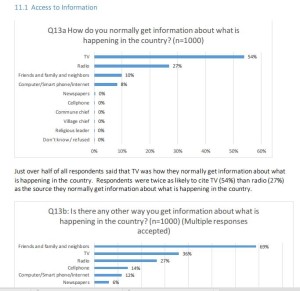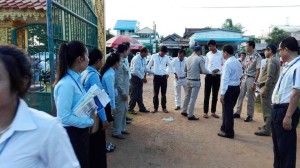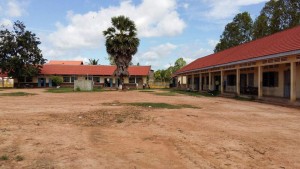 While the cooperation (non-confrontational or culture of dialogue) between Cambodia National Rescue Party (CNRP) and Cambodian People’s Party (CPP) is transformed into confrontation as usual in over-night political rhetoric, the term of heated up political conflict in Cambodia has been tensely criticized. Heated up because of the changing political attitude between government-led party and opposition party has rarely happened in developed countries (both communist and democratic countries). But Cambodia has experienced exotic political culture. Whenever, there are conflicts between different political parties, Cambodian people are under fear, investors are under threat, and foreign direct investment (FDI) are under uncertainty. This phenomena is indicating that Cambodia has no political institution that belongs to the nation. Cambodia has proven herself as a fragile state of few leadership like what Aristotle pinpointed it “led by few” or “autocrats”.
While the cooperation (non-confrontational or culture of dialogue) between Cambodia National Rescue Party (CNRP) and Cambodian People’s Party (CPP) is transformed into confrontation as usual in over-night political rhetoric, the term of heated up political conflict in Cambodia has been tensely criticized. Heated up because of the changing political attitude between government-led party and opposition party has rarely happened in developed countries (both communist and democratic countries). But Cambodia has experienced exotic political culture. Whenever, there are conflicts between different political parties, Cambodian people are under fear, investors are under threat, and foreign direct investment (FDI) are under uncertainty. This phenomena is indicating that Cambodia has no political institution that belongs to the nation. Cambodia has proven herself as a fragile state of few leadership like what Aristotle pinpointed it “led by few” or “autocrats”.Political Paradigm of Pragmatism from the Khmer Youth part 45
 While the cooperation (non-confrontational or culture of dialogue) between Cambodia National Rescue Party (CNRP) and Cambodian People’s Party (CPP) is transformed into confrontation as usual in over-night political rhetoric, the term of heated up political conflict in Cambodia has been tensely criticized. Heated up because of the changing political attitude between government-led party and opposition party has rarely happened in developed countries (both communist and democratic countries). But Cambodia has experienced exotic political culture. Whenever, there are conflicts between different political parties, Cambodian people are under fear, investors are under threat, and foreign direct investment (FDI) are under uncertainty. This phenomena is indicating that Cambodia has no political institution that belongs to the nation. Cambodia has proven herself as a fragile state of few leadership like what Aristotle pinpointed it “led by few” or “autocrats”.
While the cooperation (non-confrontational or culture of dialogue) between Cambodia National Rescue Party (CNRP) and Cambodian People’s Party (CPP) is transformed into confrontation as usual in over-night political rhetoric, the term of heated up political conflict in Cambodia has been tensely criticized. Heated up because of the changing political attitude between government-led party and opposition party has rarely happened in developed countries (both communist and democratic countries). But Cambodia has experienced exotic political culture. Whenever, there are conflicts between different political parties, Cambodian people are under fear, investors are under threat, and foreign direct investment (FDI) are under uncertainty. This phenomena is indicating that Cambodia has no political institution that belongs to the nation. Cambodia has proven herself as a fragile state of few leadership like what Aristotle pinpointed it “led by few” or “autocrats”.


